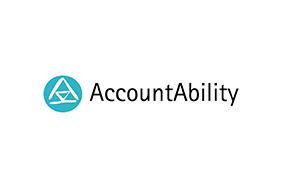Corporate Responsibility Impacts on National Competitiveness
Published 12-09-03
Submitted by AccountAbility
Leading international economist and former Director of the Global Competitiveness Program at the World Economic Forum, Peter Cornelius said: "A nation's competitiveness and underlying productivity is clearly impacted by how its business community deals with social and environmental issues. This report offers for the first time insights into what this relationship might be, and so how to manage it going forward."
The Index identifies 22 countries notably two of the world's largest economic powers, the USA and China, as having a 'responsibility deficit'. Macroeconomic growth in these countries could be compromised by as much as 10% once the effects of Corporate Responsibility are factored in.
Former special adviser to the President of Brazil, Oded Grajew, argues: "the Responsible competitiveness of nations is essential to achieve sustainability in today's globalised world. The Index offers a fantastic tool to measure how each country is doing in promoting this approach, and to focus governments, business and civil society on policies to improve their position."
The Responsible Competitiveness Index is the result of eighteen months work including consultations with the World Bank, the World Economic Forum, and the European Commission. It considers corporate responsibility alongside traditional factors affecting a country's economic competitiveness, and provides a sound basis for understanding the correlation between national competitiveness and corporate responsibility.
Speaking at today's launch of the Responsible Competitiveness Index at the UN Global Compact Conference in the Brazilian city of Belo Horizonte, Simon Zadek, Chief Executive of AccountAbility said: "The Index highlights how greater corporate responsibility can play an important role in moulding tomorrow's global markets. Looking forward, governments, in partnership with business and other social and public policy makers, must create an environment that encourages and sustains responsible corporate behaviour whilst delivering economic advantage."
Notes to Editors:
1. AccountAbility’s mission is to promote accountability for sustainable development within business, NGOs and government. Headquartered in London, it is an international professional institute committed to enhancing the standards and performance of organisations and individuals. It has a global membership of organisations and individuals, including PriceWaterhouseCoopers, Nike, KPMG, the Co-operative Bank, BT and Novo Nordisk.
2. The Responsible Competitiveness Index 2003 costs non-members of AccountAbility £40/€60/$70 and can be ordered on-line at publications@accountability.org.uk.
3. AccountAbility, in association with The Copenhagen Centre is conducting work on numerous aspects of Responsible Competitiveness. These include:
- Evaluating, post-Cancun, the role that trade and investment policy could play in promoting sustainable development through Corporate Responsibility in open-market frameworks.
- Identifying how Corporate Responsibility contributes to the competitiveness of cities, through a focus on London's competitiveness.
- Determining whether Corporate Responsibility activities can provide effective vehicles for scaling up the impact of pro-poor development strategies.
5. Peter Cornelius is now Senior Economist at Shell.
6. Oded Grajew is Founder and President of Instituto Ethos, Brazil.

AccountAbility
AccountAbility
AccountAbility is a global consulting and standards firm that works with businesses, investors, governments, and multi-lateral organizations to achieve opportunities, advance responsible business practices, and transform their long-term performance. We focus on delivering practical, effective, and enduring results that enable our clients to succeed.
More from AccountAbility

